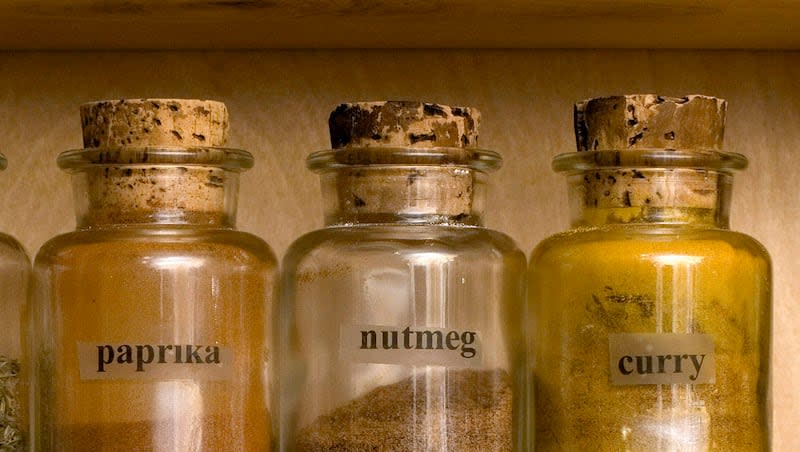Spices and herbs do not expire in a traditional sense. Here’s what to know

Spices and herbs are not just useful for adding flavor to foods. Healthline reports that they also can “help prevent spoilage” and add “health-promoting plant compounds” to your meals.
On top of this, some recent evidence suggests they may even reduce the risk of “complications associated with heart and respiratory diseases” when used frequently, per Healthline.
But, as Food Network has noted, seasonings can lose their flavor over time. That’s why it’s important to check on them regularly before they degrade too much.
How spices and herbs are made
The Food and Drug Administration defines spices as “aromatic vegetable substances, in the whole, broken, or ground form, whose significant function in food is seasoning rather than nutrition.”
Iowa State University reports that spices originate from plant parts such as bark, roots and seeds. Examples of spices include cinnamon (bark), ginger (root) and nutmeg (seeds).
Herbs, on the other hand, are made from a plant’s fresh or dried leaves. Examples of herbs include basil, oregano and rosemary, according to Healthline.
Do spices and herbs expire?
As stated by Healthline, spices and herbs don’t expire in the conventional sense, but they can lose flavor, color and potency over time.
They are generally safe to use past their store-bought, best-by dates, although they may not work as well after those dates compared to when they’re fresh.
To check if a spice has lost its potency, Healthline recommended to “crush or rub a small amount in the palm of your hand.” If its scent and flavor is bland, then it might be worth buying a replacement.
A shelf-life list of spices and herbs
The shelf life of a spice or herb depends on multiple factors, such as its level of processing and how it’s stored, per The Daily Meal.
Healthline added that whole spices will have a longer shelf life than other types of seasonings, given that they’re processed less.
According to The Pioneer Woman, the reason why whole spices last longer is because their “fragrant oils” stay intact longer.
Here are some general freshness guidelines:
Dried herbs — including cilantro, parsley and thyme — can last one to three years.
Ground/powdered spices can last two to three years.
Whole spices — such as coriander and peppercorns — have a shelf life of up to four years.
Tips to properly store spices and herbs
If you want to preserve your seasonings for longer, Home & Texture recommends doing the following:
Use smaller containers. While it is generally cheaper to buy in bulk, those larger packages take much longer to get through, and using smaller quantities allows for stronger flavors over time, per Home & Texture.
Keep them in cool, dry areas and away from sources of heat and light, including stovetops and sinks.
Limit air exposure only to when it’s needed. When spice is exposed to air, it then can oxidize and limit its flavor over time, wrote Home & Texture.
Healthline reports that you can refrigerate red spices to help them keep their pigment longer and store oil-held seasonings in the fridge to prevent them from going rancid, but these aren’t required.
Caution: Exposure to moisture can cause spices to degrade and even grow mold. Healthline says you can avoid this by measuring the desired amount onto a spoon and sprinkling it onto food that may steam, rather than pouring the container over the food.

